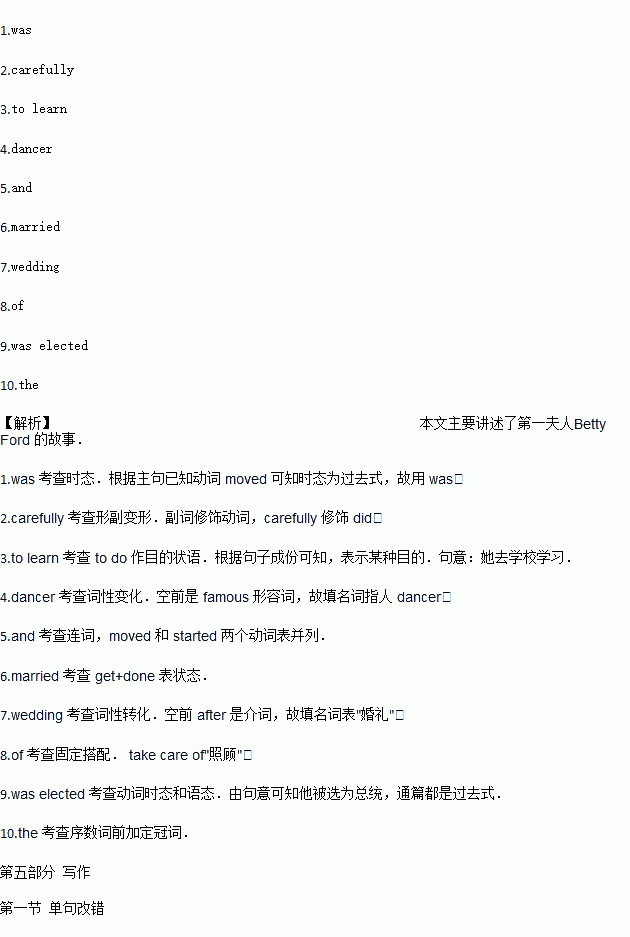题目内容
Betty Ford was born in 1918 in Chicago. Her family moved to Michigan when she 1. (be) young. Betty did everything2. (careful) and enjoyed music best. After high school, she went to school 3. (learn) more about dancing. Later on, she met a famous 4. (dance), Martha Graham. She joined Graham’s troupe(表演团) in New York. After five years, Betty moved back to Machigan 5. started a dancing group there. She taught dancing to children with disabilities. Betty met Gerald Ford in 1947. They got 6. (marry) the next year. Gerald chose to work for Congress (国会) after 7. (wed). He was in Congress for 25 years. Betty took care 8. their children. A short time later, Nixon gave up his position of the president. As a result, Gerald Ford 9. (elect) president and Betty became 10. First Lady.
 口算题天天练系列答案
口算题天天练系列答案
